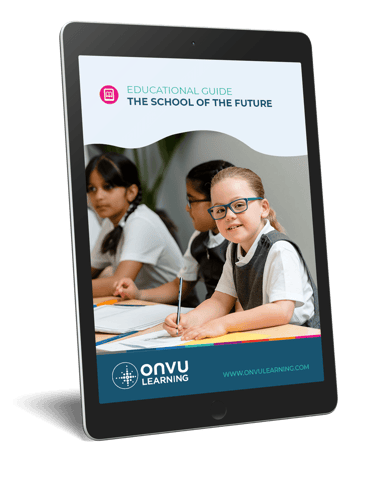- Blogs
- 2 Minute Read


At a time when most schools are closed and teachers and other staff settle for remote working, we thought we would share our experiences – we’ve been working remotely for well over a month now and have been able to reflect on and learn from our experiences. Schools have been thrust into remote working and we hope that the Easter holidays will provide time for you to share and adopt some of these ideas!
Time now feels very different for people, but in different ways. Some will feel less urgency and take time to get things done, while others see fewer boundaries between work and home and overexert themselves. And of course, there are many who are looking after children or helping others and need to fit this around work. The solution is to create (and adjust where needed) a routine that you can stick to – and let your colleagues know about it.
Some people will have a separate room to work from. But most people won’t have this luxury. Try though to find and keep to a designated ‘workspace’ rather than having work-related material all over your home. This allows you to break away from work at evenings, weekend and holidays.
There are many dangers to homeworking in these times – make sure to take regular breaks, exercise frequently, eat and drink healthily, maintain good relationships with those you’re living with and look after your own mental health and wellbeing. If you’re having issues in any of these areas please ask for help from your school.
One thing we’ve found works well is to try to talk to people rather than using electronic communication. That may not be possible with your students (schools have different policies!) but it certainly applies to colleagues. If you’re wrestling with difficult issues, a quick phone or voice call is better than an email, and tools such as Microsoft Teams (or Zoom) are great for team meetings.
From the start of the ‘work from home’ period we’ve been sending out regular updates. We did wonder if there were too many, but feedback has been incredibly possible. People want to know what is happening across an organisation and will have concerns for the future. It’s also important for organisations to provide regular feedback opportunities – what can be done better? What tips are we finding that work?
Unfortunately, there will be people who are more impacted by COVID-19 – those who have family working in critical services, those who know people with the virus or who contract it themselves. Make sure to keep in regular touch and offer support – and be sure to remove any work pressure on these people.
Remote working can be fun. We’re developing a range of social events and fun challenges to keep the team connected and motivated. They’re also a great opportunity to engage team members who would normally not have the chance to meet each other, or are too busy to do so. Think about ‘virtual coffee’ sessions, quizzes and picture challenges. It’s important not to make them mandatory but to invite everyone and make them welcome – having a host for some of them really go a long way!
Do you have any other tips you could share with our community? Visit us on LinkedIn and Twitter and have your say.

The School of the Future Guide is aimed at helping school leaders and teachers make informed choices when designing the learning environments of the future using existing and upcoming technologies, as they seek to prepare children for the rest of the 21st century – the result is a more efficient and competitive school.
KEEP IN TOUCH WITH ONVU LEARNING AND RECEIVE THE LATEST NEWS ON EDTECH, LESSON OBSERVATION, AND TEACHER TRAINING AND DEVELOPMENT.